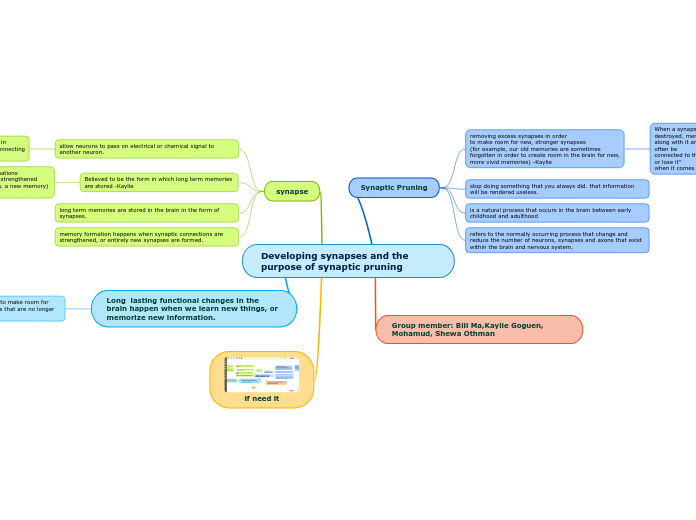von SHEWA OTHMAN Vor 3 Jahren
317
Developing synapses and the purpose of synaptic pruning
Synaptic pruning is a crucial neurological process that occurs from early childhood through adulthood. It involves the reduction of neurons, synapses, and axons in the brain and nervous system to eliminate redundant or weaker connections, thereby optimizing the brain'









